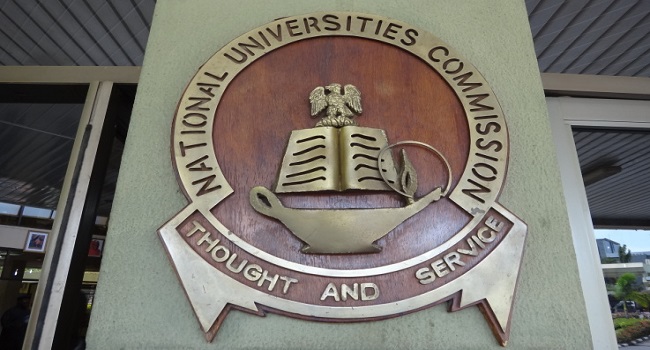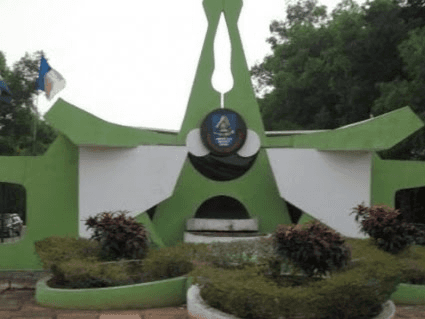NUC, NOUN, and AAU educate 931 scholars on the use of AI


At least 931 staff members from Nigerian universities, polytechnics, and colleges of education have completed a 13-week intensive training programme on the use of artificial intelligence to enhance their teaching, research, and community engagement.
The National Universities Commission (NUC), National Open University of Nigeria (NOUN), and the West Africa Office of the Association of African Universities (AAU) organised the training programme, which is expected to be funded by the Tertiary Education Trust Fund. It was overseen by the NUC Strategy Advisory Committee (STRADVCOM).
Speaking to reporters after the graduation ceremony, Professor Emeritus Peter Okebukola, Director/Facilitator-General of the Virtual Institute for Capacity Building in Higher Education (VICBHE), which provided the training, stated that “during the 13 weeks of training, we covered key concepts in AI and had 11 practical sessions”.
He also stated that the participants may now practically employ AI tools to help their teaching, research, and community engagement.
According to him, “They may now conduct machine learning exercises and, more crucially, apply AI technologies for quality assurance and accreditation. All participants learned about ethical considerations in the use of AI.”
Okebukola who was the immediate past Chairman Governing board of the National Open University of Nigeria, NOUN said that he was delighted that the end-of-course project which all the participants undertook was on the development of AI policies for their institutions.
According to him,, “The quality of the project reports is amazing. The aggregation of these policies will lead us to draft AI policies for higher education institutions in the participating countries and under the aegis of the AAU West Africa Office, produce a draft for the Africa region for consideration by the Secretary General of AAU, Professor Olusola Oyewole.
“We closed the practical sessions with training participants in deepfake technology. They are now able to deepfake videos and pictures. We did this for two reasons. First, not to hide the bad sides of AI from them but to give them, through hands-on methodology, the good and the bad sides.
“The second reason is that if they know deepfake, they are better positioned to detect deepfake videos and images when they see one,” .
The participants at the training included Vice-Chancellors, Rectors of Polytechnics, Provosts of Colleges of Education, Deputy Vice-Chancellors, Directors of Academic Planning, Directors of Information and Communication Technology (ICT), Deans of Faculty, Heads of Department, Professors, Chief Lecturers and senior management staff of higher education institutions in Nigeria.
A former Minister of Education, Professor Ruqayyatu Ahmed Rufa’i, who was the Chairman of the ceremony and the keynote speaker, Sir John Daniel, former Assistant Director General for Education of United Nations Educational Scientific and Cultural Organisation (UNESCO) and former Vice-Chancellor of the Open University of the United Kingdom (UK), all lauded the training programme.
They saw it as farsighted and urged the graduates to be prepared for a fast-changing world where Artificial Intelligence would play a major role. Prof. Rufa’i further underlined the importance of the training for the successful implementation of the NUC Core Curriculum and Minimum Academic Standards (CCMAS), a legacy of Prof. Abubakar Adamu Rasheed, now in use in Nigerian universities.
The special guest of honour was Professor Ngozi Odu, the Deputy Governor of Rivers State. Goodwill messages were received from Acting Executive Secretary of NUC, Chris Maiyaki; Professor Olufemi Peters, Vice-Chancellor, National Open University of Nigeria; Engr. Oreoluwa Okebukola, Global AI Enthusiast and Entrepreneur based in Lynnwood (USA); Professor NV Varghese, Vice-Chancellor, National Institute of Educational Planning and Administration, New Delhi, India; Dr. Ambumulire Phiri, CEO, National Commission for Higher Education of Malawi; and Professor Is-haq O. Oloyede, the Registrar of Joint Admissions and Matriculations Board (JAMB).
On the performance of the participants, Okebukola disclosed that a total of 156 participants earned distinction plus certificate; 457 had distinction; 74 with credit; 131 merit; and 113 with pass. He added that 290 participants earned distinction in the end-of-course project while 21 participants received special awards.
These include the Malam Adamu Adamu prize for the overall best graduating participant which was awarded to Professor Omolara Oluwasola Oluwaniyi of the University of Ilorin. The same participant won the Professor Abubakar Adamu Rasheed Prize for the best participant from the Nigerian university system and the Professor Ngozi Odu Prize for the Best Female Participant Overall.
The Arc Sonny Echono Prize for the Best overall head of tertiary institutions was won by Professor Mohammed Tanko, Vice-Chancellor, Mewar University. Other awards went to Dr. Florence Kakwera, National Council for Higher Education, Malawi (Professor Olusola Oyewole Prize); Dr. Bridget Audu, National Universities Commission (Christopher J. Maiyaki Prize); Professor Ibiyinka Fuwape, Michael and Cecilia Ibru University (Professor Ruqayyatu Ahmed Rufa’i Prize); Christie Dasaro, ECWA International College Of Technology, Jos (Best serving Rector of Polytechnic); Professor Akan WILLIAMS, former VC, Covenant University (Best former Vice-Chancellor); Professor Basirat Oladipupo-Folarin, Lagos State University of Science and Technology (Best serving Deputy Vice-Chancellor).
The graduation ceremony also saw the formal launch by Okebukola of the Nigeria Association of Artificial Intelligence (AI) Practitioners (NAAIP).









